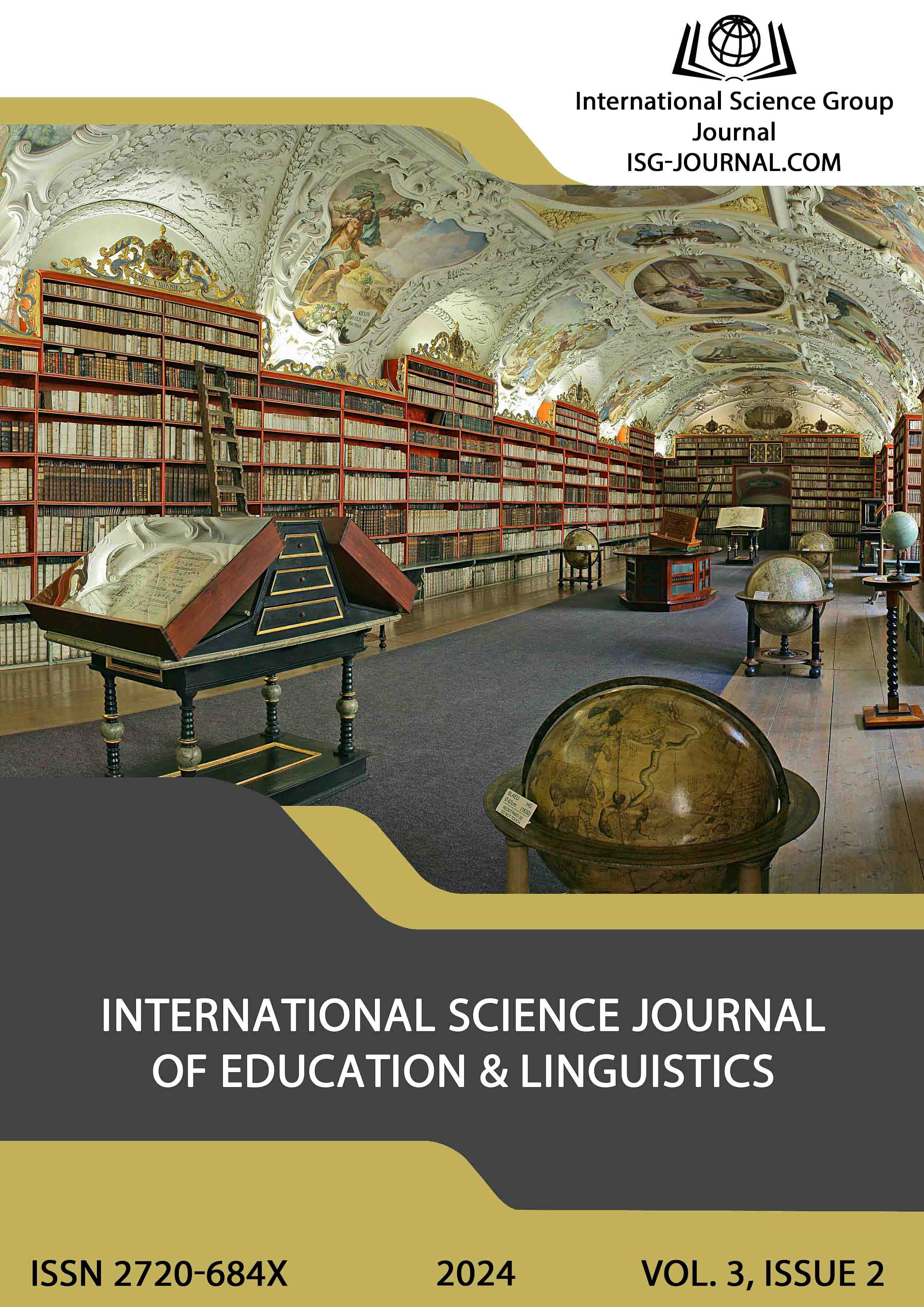Reading in English as a means of developing analytical skills of future IT professionals
DOI:
https://doi.org/10.46299/j.isjel.20240302.09Keywords:
analytical skills, foreign language, English language, reading, types of reading, IT technologies, working with text, stages of working with textAbstract
The article describes the preliminary results of the development of a pedagogical system for the formation of analytical abilities of future computer specialists. Professional research allows to identify the abilities that ensure the success of professional activity. The results of the study reveal contradictions that actualise the need to update the content of professional education and find effective means of improving the quality of professional training of computer science specialists in higher education institutions. The professional activity of an IT specialist requires the use of databases, the use of a foreign language to create computer programs, information search, obtaining constantly updated information from original sources in a foreign language, independent continuing education and improving professional skills. Therefore, the development of analytical skills of future computer specialists in the educational process in a foreign language is of great importance and contributes to the successful implementation of a specialist in professional activities. Analytical skills are important for each component as they are used to extract knowledge from practice. The implementation of the system of developing analytical skills in future computer science specialists in the process of learning a foreign language allows us to draw preliminary conclusions that the process of learning a foreign language will contribute to the development of analytical skills necessary for professional growth, successful self-improvement based on the analysis of their activities (reflective component), improvement of knowledge (cognitive component), obtaining and processing information (informative component), and effective use of information resources (informational component). The development of analytical skills determines the readiness of a computer science specialist for professional activity and ensures the ability to effectively solve various professional problems.References
Вейзе А. А. (1985). Чтение, реферирование и аннотирование иностранного текста. Москва: Высшая школа.
Косович О. В. (2019). Класифiкацiея i критерiї вiдбору навчального матерiалу для формування англомовної аудитивної компетентностi студентiв. Педагогiчнi науки: теорiя, історія, iнновацiйнi технології, 214-224.
Меньшенина С. Г. (2013). Обучение чтения на английском языке как средство формирования аналитических умений будущих специалистов по компьютерной безопасности. Вестник Самарского государственного технического университета, серия «Психолого-педагогические науки». Самара: ФГБОУ ВПО «Самарский государственный технический университет», 1 (19), 101-107.
Ніколаєва С.Ю. (2002). Методика викладання іноземних мов у середніх навчальних закладах : підручник. Вид. 2-е, випр. і перероб. Київ : Ленвіт, 328 c.
Романова Е. С. (2003). 99 популярных профессий. Психологический анализ и профессиограммы. Санкт-Петербург: Питер.
Садовский В. Н. (1974). Основание общей теории систем. Логико-методологический анализ. Москва: Наука. Режим доступа: http://www.philosof.onu.edu.ua/elb/uemov/system_general_theory.pdf.
Тарасов П. Ю. (2010). Формирование аналитических умений у режиссеров театрализованных представлений в процессе профессиональной подготовки в вузе (дис. ... канд. пед. наук: 13.00.08). Москва.
Фоломкина С. К. (1987). Обучение чтения на иностранном языке в неязыковом вузе. Москва: Высшая школа.
Щерба Л. В. (1974). Преподавание иностранных языков в средней школе. Общие вопросы методики. Москва: Просвещение. Режим доступа: http://books.e- heritage.ru/book/10094398.
Caєнкo H.C. (2015). Miждиcциплiнaрний пiдxiд дo навчання іноземнoï мoви y вищiй тexнiчнiй шкoлi: Maтepіaли XI Міжнародної наукової конференції [«Бъдeщитe изcлeдвaния – 2015»], (Coфия, 17–25 фeвpyapи 2015). Coфия, «Бял ГPAД-БГ» OOД, Toм 8. C. 29–31.
English for Specific Purposes (ESP). National Curriculum for Universities. 2005. Kyiv, British Council, Ukraine. P. 119.
Jones C. (2009). Interdisciplinary Approach – Advantages, Disadvantages, and the Future Benefits of Interdisciplinary Studies. ESSAI. Vol. 7. P. 76–81. URL: https://dc.cod.edu/cgi/viewcontent. cgi?article=1121&context=essai.
Kosovych, O. and others. (2020). Linguo-didactic aspect of formation of professionally- oriented lexical competence of students of the specialty «Jurisprudence». Scientific Journal “ScienceRise: Pedagogical Education”, 2 (35), P. 4-7.
Lederman N. G. & Niess M. L. Integrated (1997). Interdisciplinary, or Thematic Instruction? is This a Question, or is it Questionable Semantics? School Science and Mathematics. 97(2). P. 57–58.
Nikolaieva, S., Zadorozhna, I., Datskiv, O. (2019). Development of pre-service English teachers’ language skills and learner autonomy via blended learning. Revista Romaneasca pentru educatie multidimensionala. Vol. 11, issue 2, P. 222-239.
Downloads
Published
How to Cite
Issue
Section
License
Copyright (c) 2024 Anastasiia Svoboda, Alona Protasova

This work is licensed under a Creative Commons Attribution 4.0 International License.





